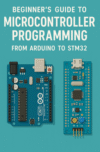Introduction
The transition to 12nm Fully Depleted Silicon on Insulator (FDSOI) technology presents unique challenges in power integrity for embedded designs, particularly in the automotive sector. As automotive applications increasingly demand higher performance and lower power consumption, optimizing power integrity becomes critical. This blog explores strategies and considerations for ensuring robust power integrity in this advanced technology node while addressing the inherent challenges posed by foundry node transitions.
Understanding Power Integrity
Power integrity refers to the ability of a power distribution network (PDN) to deliver stable voltage levels to the integrated circuits (ICs) without excessive noise or fluctuations. In automotive applications, where reliability and safety are paramount, maintaining power integrity is essential. Key factors influencing power integrity include:
- Power Delivery Network (PDN) Design: The layout and materials used in the PDN can significantly impact voltage stability.
- Decoupling Capacitors: The choice and placement of decoupling capacitors are crucial for noise reduction.
- Ground Bounce and Electromagnetic Interference (EMI): These issues can lead to instability in power delivery.
Challenges in Foundry Node Transition
Transitioning to the 12nm FDSOI process involves several challenges that can complicate power integrity:
- Process Variability: Variations in manufacturing processes can lead to inconsistencies in device performance.
- Increased Leakage Currents: As transistor sizes shrink, leakage currents can increase, affecting power consumption and thermal management.
- Noise Sensitivity: Smaller nodes are more susceptible to noise, making it essential to implement robust noise mitigation strategies.
Strategies for Optimizing Power Integrity
To effectively optimize power integrity in 12nm FDSOI embedded designs, consider the following strategies:
1. Advanced PDN Design
Designing an advanced PDN is crucial for managing power distribution effectively. Key considerations include:
- Use of Via Stitching: Incorporate multiple vias to reduce inductance and improve current distribution.
- Layer Stacking: Utilize multiple metal layers to create a robust power grid.
- Ground Planes: Implement solid ground planes to minimize ground bounce and improve signal integrity.
2. Intelligent Decoupling Capacitor Placement
Proper placement of decoupling capacitors can significantly enhance power integrity:
- High-Frequency and Low-Frequency Capacitors: Use a combination of capacitors to address different frequency domains.
- Proximity to Power Pins: Position decoupling capacitors close to the power pins of the IC to reduce inductance.
- Simulation Tools: Utilize simulation tools to optimize capacitor placement and sizing based on the specific design requirements.
3. Managing Thermal Design
Thermal management plays a crucial role in power integrity, especially in automotive applications where environmental conditions can vary:
- Heat Sinks and Thermal Pads: Implement heat sinks and thermal pads to dissipate heat effectively.
- Thermal Simulation: Conduct thermal simulations to identify hot spots and optimize the layout accordingly.
- Material Selection: Choose materials that offer better thermal conductivity to enhance heat dissipation.
4. Mitigating Noise and EMI
Noise and EMI can significantly impact power integrity. Consider the following measures:
- Shielding Techniques: Employ shielding techniques to protect sensitive circuits from EMI.
- Ground Isolation: Isolate noisy circuits from sensitive ones to reduce interference.
- Use of Ferrite Beads: Incorporate ferrite beads in power lines to filter out high-frequency noise.
Conclusion
Optimizing power integrity in 12nm FDSOI embedded designs for automotive applications is a multifaceted challenge that requires a comprehensive approach. By addressing the complexities of foundry node transitions and implementing advanced strategies for PDN design, decoupling capacitor placement, thermal management, and noise mitigation, engineers can ensure reliable and efficient performance in their automotive systems. As the industry continues to evolve, staying ahead of power integrity challenges will be key to achieving the desired outcomes in next-generation automotive applications.


